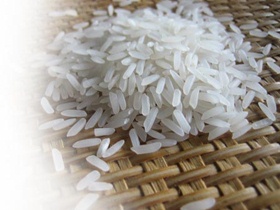MOSCOW, June 2 – Russia has signed an agreement with Thailand to repay its rice debt inherited from the former Soviet Union.
Thai Commerce Minister Pornthiva Nakasai travelled to the Russian capital on behalf of the Thai government to sign the agreement with Russian Deputy Finance Minister Sergey Storchak.

“It was delightful that both countries had come to terms,” she said.
Russia is to repay its debt to Thailand within 30 working days, which is by July 12.
The debt’s principal sum of about US$36 million, or over Bt1 billion, has been in arrears for over 20 years when Thailand earlier sold 200,000 tonnes of rice to the former Soviet Union in 1990 under a government-to-government contract.
The debt was understood to be repaid in two years, but the then Soviet Union collapsed the following year and the Russian Federation government could not meet the obligation.
Several negotiations followed. The latest agreement relieves Russia of the accrued interest of US$9 million, which will be retired.
Mrs Pornthiva said the accord was to maintain good relations between both countries and some of the interest had previously been paid to the Thai government by Russia.
The minister said Russia is an interesting market for Thailand, as the country is dependent on rice import of 400,000 tonnes annually.
Thailand last year exported 50,000 tonnes of rice to Russia in private sector arrangements and the first four months of this year saw the value of Thai rice exports to Russia reach US$400 million.
Overall Thai exports to Russia last year increased in value to US$700 million, a 90-per cent rise from 2009.
The Russian economy continues developing with high purchasing power, Mrs Pornthiva said, adding that she is certain that Thai goods will mainly expand in this market, particularly rice, frozen seafood, air conditioners, automobile, car accessories, and home decorative items.
However, Thailand currently has a negative balance of trade with Russia, as its goods imported to Thailand is of high value such as fuel, iron and various types of ore.
Mrs Pornthiva said the systems of Russia’s commercial banks and international payment that are not fully standardised are obstacles to trade, and she warned Thai entrepreneurs to thoroughly study all the Russian systems. The Department of Export Promotion (DEP) and the Export-Import Bank of Thailand (Exim Bank) are to provide advice, she said. (MCOT online news)




